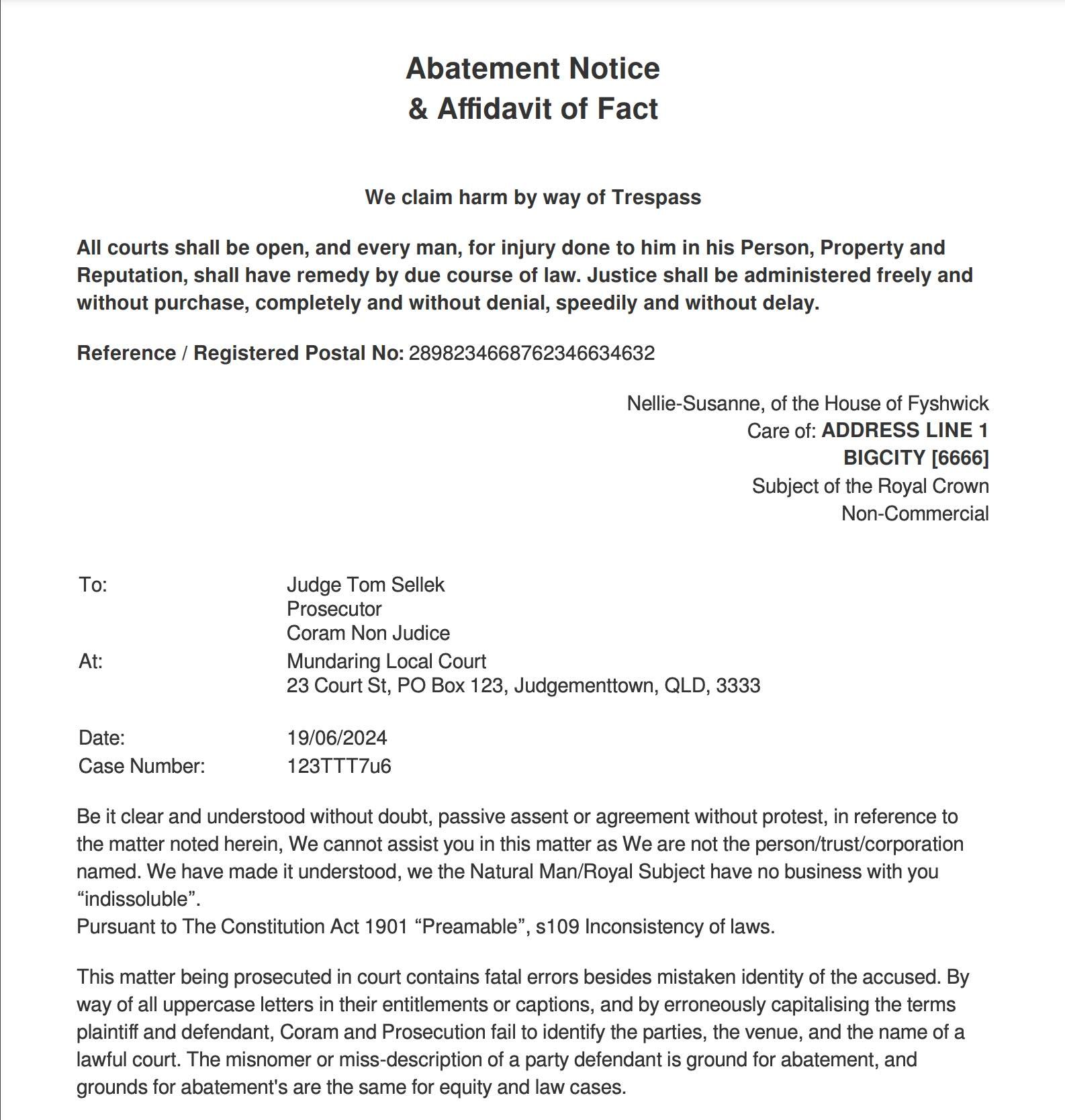This letter appears to serve as a formal rejection and notice of non-acceptance of a financial bill or demand issued by a third party. It asserts the sender’s rights and positions under various legal frameworks, including trust law and fiduciary duties. The letter’s main purposes are:
1. Rejection of Liability: The sender rejects the bill or demand, stating that they do not accept its terms or conditions and are not liable for the financial obligations ascribed.
2. Assertion of Fiduciary Duties: The letter claims that the addressee (trustee) has a fiduciary responsibility to manage the trust account on behalf of the sender, who is named as the beneficiary or grantor.
3. Demand for Corrective Action: It outlines steps the addressee must take to fulfill their fiduciary duties, such as drawing from the relevant trust account to settle the matter or correcting the billing addressee to the beneficiary.
4. Cease and Desist Request: The letter demands that the addressee stop alleged harassment or coercive practices aimed at extracting payment.
5. Legal Warning: It emphasizes potential legal consequences, including litigation, if the demands are not met or if improper conduct continues.
6. Request for Transparency: The sender requests identification of the employee rejecting their proposed settlement method and accuses the addressee of improperly handling financial instruments like Bills of Exchange or Promissory Notes.
The letter functions as both a rejection of a financial claim and a challenge to the recipient’s handling of the matter, framed within the context of trust law, fiduciary duties, and legal compliance.
How to use this form
Kindly complete the form below, adhering closely to the instructions provided for each field to ensure accuracy. Once finished, submit it, and you will receive an email with a PDF attachment containing the completed form. Print the required number of copies, autograph / sign them, or arrange for autographs/ signatures, and dispatch them via registered post for optimal processing.

